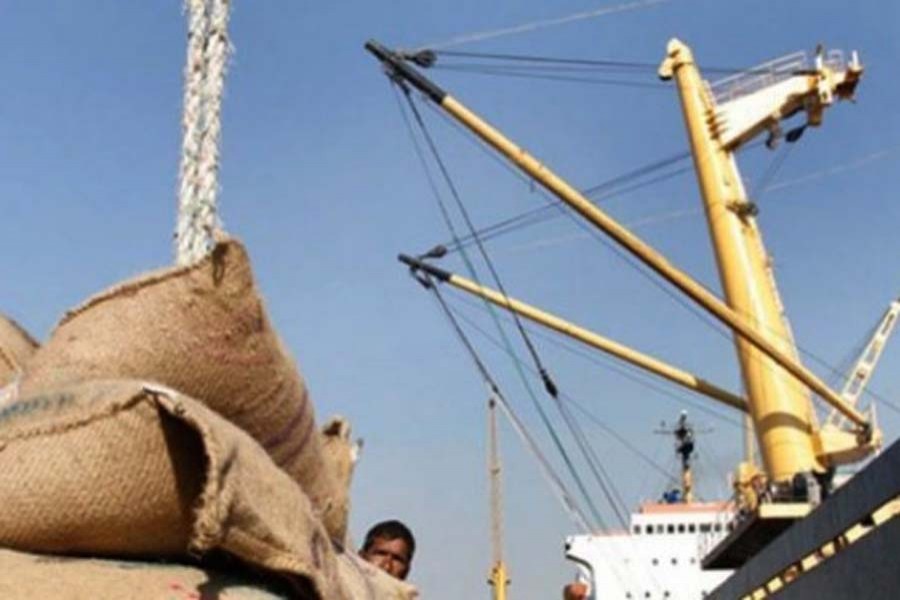The country's food-grain imports plunged by over 75 per cent to US$ 386 million during the first quarter of this year in terms of letters of credit (LCs) opened after the bumper rice output.
LCs worth $1.56 billion were opened during July-September of 2017 as rice prices soared following loss of boro crop due to consequent floods.
People familiar with the situation told the FE that better rice production is the main reason behind the fall in its import.
"Imports plummeted this season because we produced a record rice," Abul Bashar Chowdhury, chairman of the Chittagong-based BSM Group, said.
He said this has had an impact on other food imports, including wheat, as people take the grain as substitute of rice.
The two consecutive rice seasons saw bumper rice production last year ending on June 30.
During Boro season, the largest by output, production reached 19.5 million tonnes this year against 18.2 million tonnes the year before.
The Aman had nearly 13.9 million tonnes production last year, compared with 13.5 million tonnes a year earlier.
This has happened at a time when the global grain production is estimated to go down by around 30 per cent following bad weather, according to local importers and international media reports.
They said drought in Australia, bad weather in Russia and Ukraine and heavy rainfall in Argentina impacted the global grain production this year.
Thailand, a major rice-exporting country, may also have lower production of rice following poor water supply, according to the US Department of Agriculture report.
The USDA estimates Thailand's rice production to be 20.7 million tonnes in 2018/19 (milled basis), down 2.0 per cent from the last year.
Last year, Bangladesh imported nearly 3.9 million tonnes grain-rice and wheat combined.
The government stocks of food grain stood at more than 1.1 million tonnes at the end of November, according to directorate general of foods.
The department said it may not import rice following the bumper crops.
"We usually target rice procurement locally, last year we procured rice following the production loss in the country," Md Arifur Rahman Apu, director general at the Directorate General of Food (DG food).
He hinted that they had much higher procurement during the Boro season and for this reason they would not import rice this year.
But he said like previous years, it will import wheat as this is much cheaper than the local procurement of the same.
The department aims to procure around 600,000 tonnes of wheat this year. On the other hand, the department has a target of procuring around 2.2 million tonnes of rice from local sources this year.
Earlier, the USDA had predicted total import would dip to 600,000 tonnes during 2018-19 due to higher production in Boro season and the reinstatement of import tariff.
The private and public sectors imported 3.892 million tonnes of rice during July-June of 2017-18, the highest in three decades, according to the Food Ministry data.


